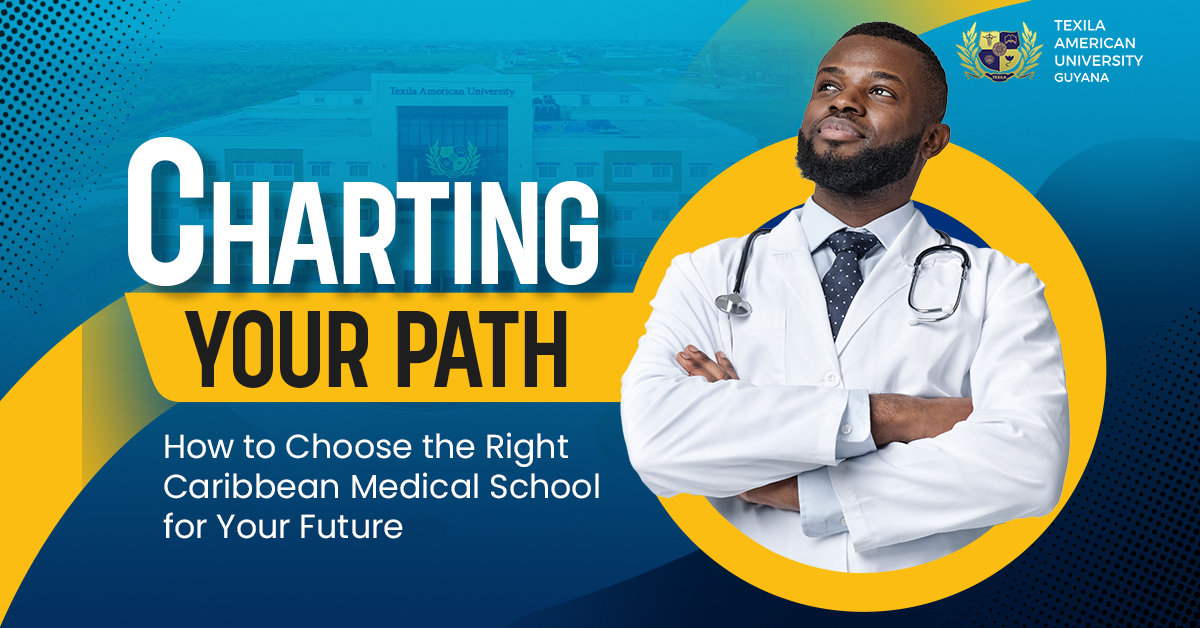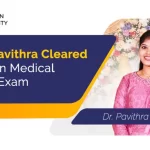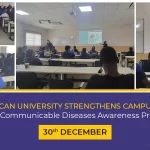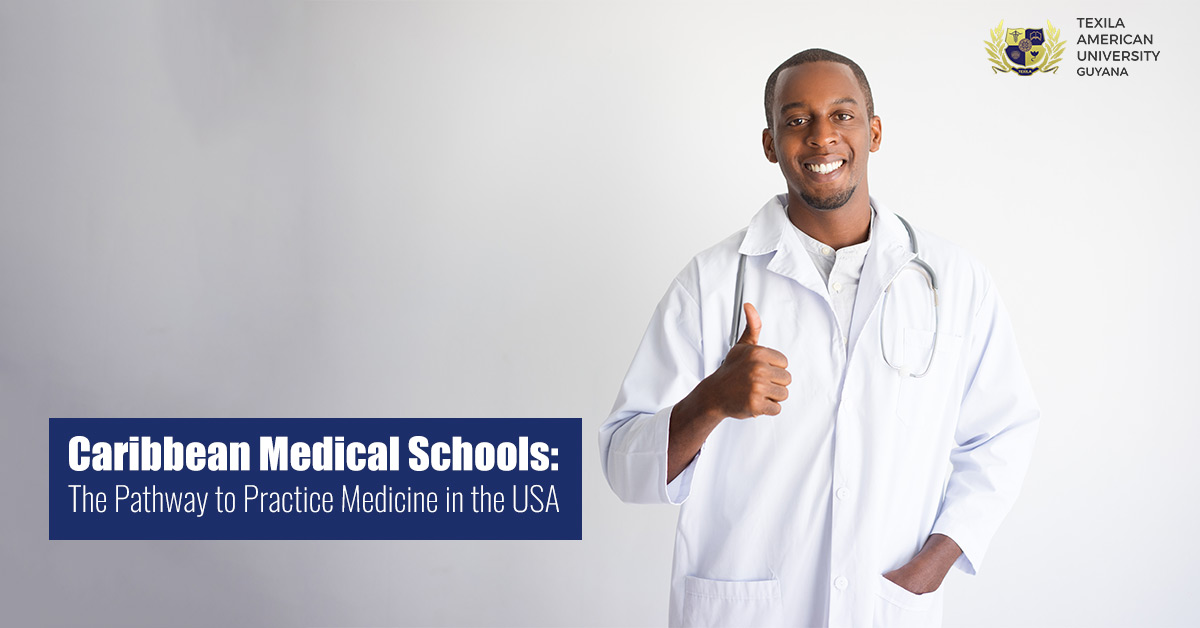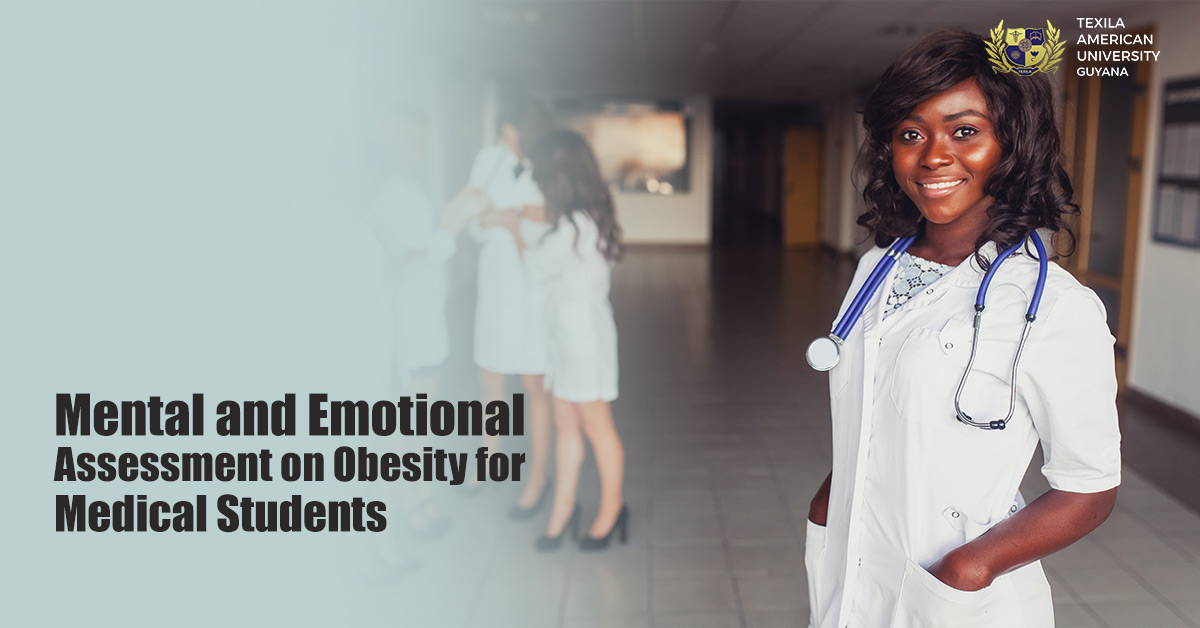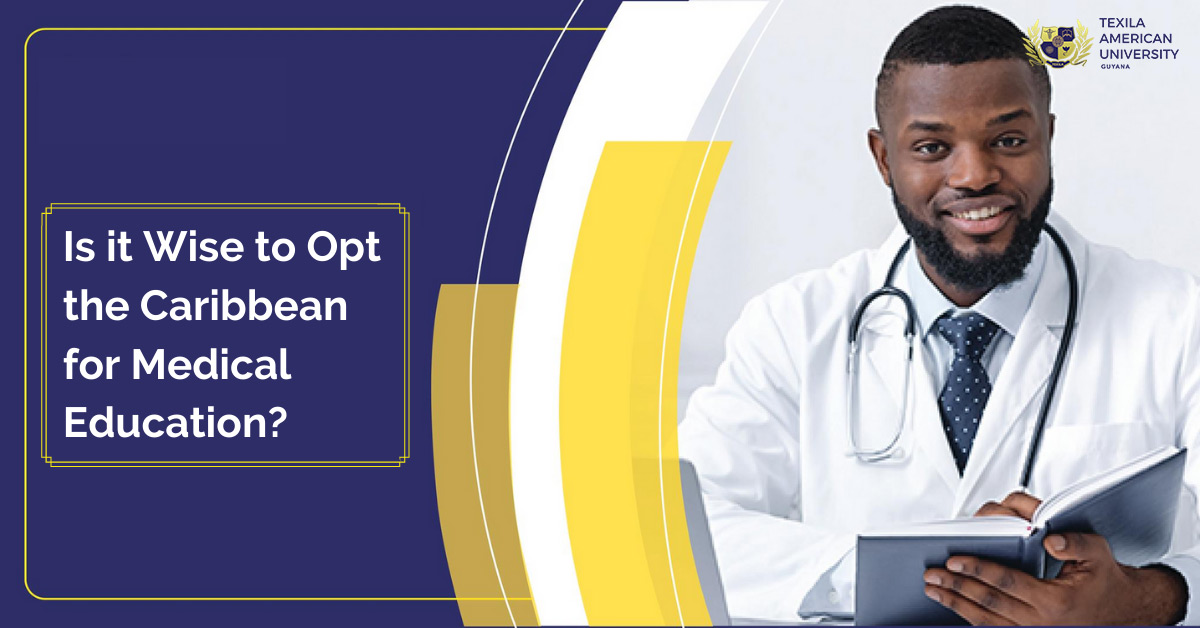Blog Summary
- Assessing Your Goals and Priorities
- Researching Caribbean Medical Schools
- Accreditation and Recognition
- Evaluating Academic Programs
- Student Support and Resources
- Clinical Rotations and Residency Opportunities
- Alumni Network and Career Support
- Considering the Cost and Affordability
- Making the Final Decision
Introduction to Caribbean Medical Schools
There has been a growing trend among aspiring doctors to explore Caribbean medical schools as a viable option for their education and career in medicine, in recent years. These institutions have experienced a surge in popularity, enticing a larger number of students from various parts of the globe. The Caribbean region offers a distinctive appeal as a captivating destination for studying medicine.
One of the significant advantages of Caribbean medical schools is their growing reputation for providing excellent education and training. These schools offer rigorous academic programs, dedicated faculty, and state-of-the-art facilities. Students can learn from experienced professionals dedicated to molding future doctors.
Studying medicine in the Caribbean also offers a diverse and multicultural environment. Engaging with colleagues from diverse backgrounds and cultures enhances the educational journey, promoting a worldwide medical outlook. Additionally, the Caribbean’s welcoming atmosphere, tropical climate, and natural beauty create an environment that supports overall well-being and a healthy work-life balance.
Choosing a Caribbean medical school can be a transformative decision that opens doors to a successful future in medicine. With its growing popularity and advantages, the Caribbean has become an attractive destination for aspiring medical professionals.
Assessing Your Goals and Priorities
When embarking on the journey of choosing a Caribbean medical school, it is crucial to assess your goals and priorities. Self-reflection is pivotal in this process as it helps you identify and align your career aspirations with the right institution.
Consider various factors such as location, curriculum, accreditation, and academic quality. Location matters, as it can impact your overall experience and opportunities for clinical rotations. The curriculum should be comprehensive, offering a solid foundation in medical knowledge and practical skills. Accreditation ensures that the school meets established education standards and prepares you for future licensing exams.
Considering personal preferences and lifestyle choices is just as significant. Think about the learning environment that suits you best – a smaller class size or a more collaborative approach. Consider the availability of student support services, extracurricular activities, and opportunities for community engagement.
By thoroughly assessing these factors, you can make a well-informed choice consistent with your objectives, principles, and preferred way of living. Choosing the right Caribbean medical school sets the stage for a successful and fulfilling medical career.
Researching Caribbean Medical Schools
Conducting comprehensive research is essential to make an informed decision when researching Caribbean medical schools. Here are some valuable tips that can help you with your research process:
- Start by exploring the official websites of Caribbean medical schools. They provide detailed information about the curriculum, admission requirements, faculty profiles, and campus facilities.
- Engage with student forums and online communities where current and former students share their experiences. These platforms offer valuable insights into the strengths and weaknesses of different schools.
- Connect with alumni networks to gain first-hand information about their experiences and post-graduation outcomes. Alums can provide valuable insights into the quality of education, clinical rotations, and career support offered by the school.
- Evaluate the expertise and qualifications of the faculty members. Experienced and dedicated faculty can significantly impact your learning experience and future career prospects.
- Consider the availability and quality of clinical rotations. Hands-on experience in reputable hospitals and clinical settings is crucial for developing practical skills and gaining exposure to various medical cases.
- Pay attention to student support services. Look for schools that offer academic advising, mentoring programs, counseling services, and resources to support your overall well-being and success.
By leveraging reliable resources and considering factors like faculty expertise, clinical rotations, and student support services, you can decide which Caribbean medical school best suits your goals and aspirations.
Accreditation and Recognition
Accreditation holds immense significance when considering Caribbean medical schools. It ensures that the institution meets specific standards of quality education and maintains an environment conducive to learning. Understanding the importance of accreditation is crucial for making an informed decision.
Caribbean medical schools receive accreditation from various recognized bodies, including the Caribbean Accreditation Authority for Education in Medicine and other Health Professions (CAAM-HP) and the Accreditation Commission on Colleges of Medicine (ACCM). These accrediting bodies evaluate the curriculum, faculty qualifications, resources, and facilities to ensure they meet or exceed the set standards.
Choosing an accredited medical school is paramount as it demonstrates that the program has met rigorous educational criteria. Accreditation is essential for establishing the quality of education, particularly for eligibility in licensing exams such as the United States Medical Licensing Examination (USMLE). Attending a recognized medical school ensures that you meet the requirements for licensure in your desired location.
By prioritizing accredited Caribbean medical schools, you can rest assured that you receive a high-quality education and maximize your chances of future success in the medical field.
Evaluating Academic Programs
When evaluating academic programs in Caribbean medical schools, reviewing the curriculum and program structure to ensure they align with your educational goals is crucial. Here are vital aspects to consider:
Integration of Clinical Experience: Look for programs that offer early clinical exposure and opportunities to apply theoretical knowledge in real-world settings. A well-integrated clinical experience enhances your practical skills and prepares you for future patient care.
Hands-on Training Opportunities: Assess the availability of hands-on training opportunities, such as simulated patient interactions, practical workshops, and clinical rotations. These experiences are vital for developing essential clinical skills and building confidence.
Research Opportunities: Consider the research opportunities offered by the program. Engaging in research allows you to contribute to medical advancements and expand your understanding of the field.
Match Rates and Residency Placements: Evaluate the program’s track record regarding residency match rates and placements. A higher match rate indicates the program’s ability to prepare students for successful residency applications and career advancement.
The success of Graduates: Look up the success stories of past graduates. Look for their accomplishments, career paths, and contributions to the medical field. This information can provide insights into the program’s ability to produce competent and successful physicians.
By thoroughly evaluating the curriculum, clinical integration, research opportunities, match rates, residency placements, and graduates’ success, you can collect all the required information to make an informed decision about the academic programs provided by Caribbean medical schools.
Student Support and Resources
Student support and resources are crucial to the overall medical school experience. When evaluating Caribbean medical schools, consider the following aspects:
- Academic Advising and Mentoring Programs: Look for schools that offer robust academic advising and mentoring programs. These services provide guidance and support throughout your journey, helping you navigate the curriculum, plan your career path, and address any academic challenges.
- Counseling Services: Assess the availability of counseling services to support your mental health and well-being. Medical school can be demanding, and having access to professional counseling can be instrumental in managing stress and maintaining a healthy work-life balance.
- Student Organizations and Extracurricular Activities: Consider the presence of student organizations and extracurricular activities. These provide opportunities for networking, leadership development, and pursuing your non-academic interests. Engaging in such activities can contribute to a well-rounded educational experience.
- Community Engagement Opportunities: Explore the school’s involvement in community engagement initiatives. Engaging in community service and outreach programs allows you to create a positive influence and acquire crucial skills, such as cultural understanding and empathy.
- Financial Aid, Scholarships, and Loan Repayment: Assess the availability of financial aid, scholarships, and loan repayment options. Medical education can be costly, so understanding how the school plans to support the student financially is essential.
By considering the availability of academic advising, mentoring programs, counseling services, student organizations, community engagement opportunities, and financial support, you can choose a Caribbean medical school that provides comprehensive student support and resources to help you thrive academically, personally, and professionally.
Clinical Rotations and Residency Opportunities
Clinical rotations and residency opportunities are critical components of medical education. When evaluating Caribbean medical schools, consider the following aspects:
- Importance of Clinical Rotations: Clinical rotations provide hands-on experience in various medical specialties, allowing you to apply theoretical knowledge in actual patient care settings. They offer opportunities to develop clinical skills, interact with patients, and work alongside experienced physicians.
- Affiliations with Hospitals and Clinical Sites: Assess the associations of Caribbean medical schools with hospitals and clinical sites. Look for schools with reputable affiliations that can enhance your learning experience. Strong partnerships ensure access to diverse patient populations and high-quality healthcare settings for your rotations.
- Residency Placement Track Record: Research the school’s track record in securing graduate residency placements. This information reflects the school’s ability to provide the necessary training and support for a successful residency application process. Consider the percentage of students who successfully match into residency programs, particularly in the United States or other desired locations.
- Networking and Mentorship Opportunities: Explore whether the school provides networking and mentorship opportunities with practicing physicians and residency program directors. These connections can significantly enhance your chances of securing desirable residency positions.
By assessing the availability and quality of clinical rotations, the strength of affiliations with hospitals and clinical sites, and the track record of graduates in securing residency placements, you can make an informed decision about the Caribbean medical school that offers excellent clinical and residency opportunities to support your career goals.
Alumni Network and Career Support
A strong alum network and career support system are invaluable resources for Caribbean medical school graduates. Consider the following aspects when evaluating a school’s alum network and career support services:
- Benefits of a Strong Alumni Network: A robust alum network offers numerous advantages to graduates. It provides opportunities for networking, mentorship, and professional development. Connecting with alums can open doors to potential job opportunities, collaborations, and guidance throughout your career.
- Career Support Services: Evaluate the career support services offered by the school and its alum associations. To improve your chances of finding employment, explore resources like job placement aid, resume and interview coaching, and opportunities to connect with potential employers through job boards and career fairs. These services can significantly enhance your post-graduation prospects.
- Success Stories and Contributions: Explore the success stories of school alums. Learn about their career paths, achievements, and contributions to the medical field. This information highlights the school’s ability to produce accomplished professionals and inspires your career journey.
- Alumni Engagement in the Medical Field: Assess how active the alums are in the medical field. Look for alums who are leaders, researchers, educators, or advocates in their respective specialties. Their contributions indicate the impact of the school’s education and the potential for your professional growth.
As a graduate of a Caribbean medical school, you can assess the level of support and guidance you’ll receive by examining the strength of the alum network, available career support services, and success stories and contributions of past graduates.
Considering the Cost and Affordability
Considering the cost and affordability of studying at a Caribbean medical school is crucial for making an informed decision. Here are key points to consider:
- Tuition Fees: Research the tuition fees associated with the Caribbean medical schools you are considering. Tuition fees can vary between institutions, and it’s essential to understand the costs involved clearly. Consider both the initial tuition fees and any potential increases throughout your program.
- Living Expenses: Research the cost of living in the medical school region of the Caribbean. It includes accommodation, transportation, food, healthcare, and other daily expenses. Research the average living costs in the area to assess its affordability.
- Financial Aid Options: Explore the financial aid options available, such as scholarships, grants, and loans. Investigate the eligibility criteria and application process for financial aid programs. Caribbean medical schools may offer financial aid programs, and external organizations or government agencies may provide funding opportunities.
- Budgeting and Planning: Emphasize the importance of budgeting and planning for the financial commitment of studying at a Caribbean medical school. Create a comprehensive budget that includes tuition fees, living expenses, and other costs. Consider your potential sources of income and any financial support from family or sponsors.
By carefully considering tuition fees, living expenses, potential financial aid options, and budgeting for the financial commitment, you can make a well-informed decision regarding the affordability of studying at a Caribbean medical school and ensure that you are prepared financially for the duration of your program.
Making the Final Decision
When selecting a Caribbean medical school, it’s crucial to thoroughly evaluate various factors before making a final decision. Here’s a summary of what to keep in mind:
- Academic Quality: Evaluate the medical school’s curriculum, faculty qualifications, and accreditation status to ensure a high standard of education.
- Clinical Experiences: Consider the availability and quality of clinical rotations, as they play a crucial role in developing practical skills and preparing for future patient care.
- Student Support: Look for schools that offer comprehensive support services like academic advising, counseling, and mentoring programs to ensure a positive and well-rounded educational experience.
- Alumni Network and Career Support: Explore the strength of the alum network and the career support services provided by the school, as they can offer valuable networking and mentorship opportunities.
- Financial Considerations: Assess the cost of tuition fees, living expenses, and potential financial aid options to determine the affordability of the medical school.
In addition to these factors, visiting campuses, attending information sessions, and connecting with current students or alums is essential. This first-hand experience will provide valuable insights into the school’s culture, facilities, and community.
As you make decisions, you must reflect on your personal goals, values, and preferences. Take the time to do so. Consider seeking guidance from mentors, advisors, and trusted individuals who can provide valuable perspectives.
Good luck on your journey toward a fulfilling and successful career in medicine! Choosing the right Caribbean medical school is a significant decision that will shape your medical future. Take the following steps: gather more information, visit campuses, and actively engage with the medical school community.

